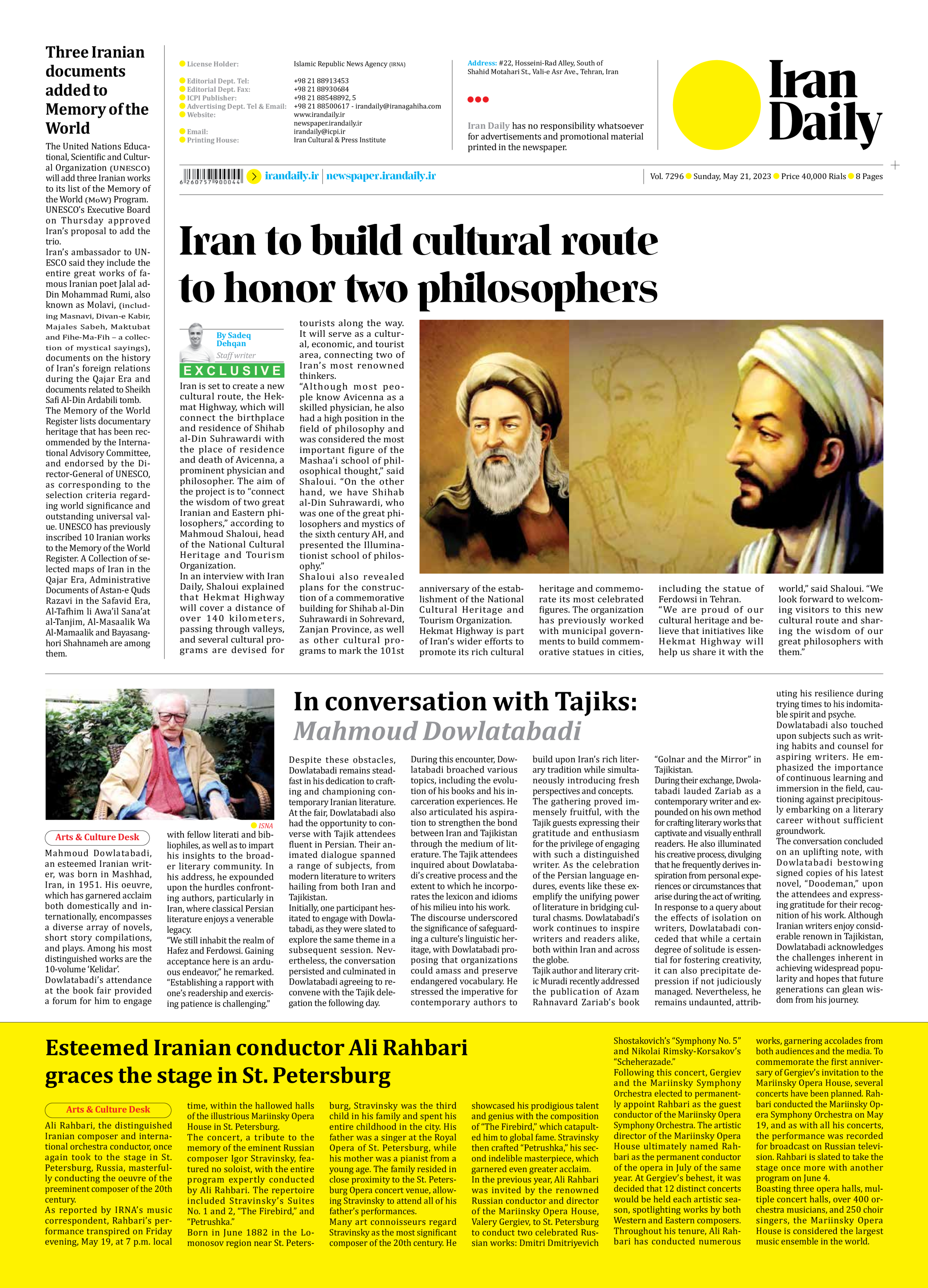
In conversation with Tajiks: Mahmoud Dowlatabadi
Mahmoud Dowlatabadi, an esteemed Iranian writer, was born in Mashhad, Iran, in 1951. His oeuvre, which has garnered acclaim both domestically and internationally, encompasses a diverse array of novels, short story compilations, and plays. Among his most distinguished works are the 10-volume ‘Kelidar’.
Dowlatabadi’s attendance at the book fair provided a forum for him to engage with fellow literati and bibliophiles, as well as to impart his insights to the broader literary community. In his address, he expounded upon the hurdles confronting authors, particularly in Iran, where classical Persian literature enjoys a venerable legacy.
“We still inhabit the realm of Hafez and Ferdowsi. Gaining acceptance here is an arduous endeavor,” he remarked. “Establishing a rapport with one’s readership and exercising patience is challenging.”
Despite these obstacles, Dowlatabadi remains steadfast in his dedication to crafting and championing contemporary Iranian literature.
At the fair, Dowlatabadi also had the opportunity to converse with Tajik attendees fluent in Persian. Their animated dialogue spanned a range of subjects, from modern literature to writers hailing from both Iran and Tajikistan.
Initially, one participant hesitated to engage with Dowlatabadi, as they were slated to explore the same theme in a subsequent session. Nevertheless, the conversation persisted and culminated in Dowlatabadi agreeing to reconvene with the Tajik delegation the following day.
During this encounter, Dowlatabadi broached various topics, including the evolution of his books and his incarceration experiences. He also articulated his aspiration to strengthen the bond between Iran and Tajikistan through the medium of literature. The Tajik attendees inquired about Dowlatabadi’s creative process and the extent to which he incorporates the lexicon and idioms of his milieu into his work.
The discourse underscored the significance of safeguarding a culture’s linguistic heritage, with Dowlatabadi proposing that organizations could amass and preserve endangered vocabulary. He stressed the imperative for contemporary authors to build upon Iran’s rich literary tradition while simultaneously introducing fresh perspectives and concepts.
The gathering proved immensely fruitful, with the Tajik guests expressing their gratitude and enthusiasm for the privilege of engaging with such a distinguished writer. As the celebration of the Persian language endures, events like these exemplify the unifying power of literature in bridging cultural chasms. Dowlatabadi’s work continues to inspire writers and readers alike, both within Iran and across the globe.
Tajik author and literary critic Muradi recently addressed the publication of Azam Rahnavard Zariab’s book “Golnar and the Mirror” in Tajikistan.
During their exchange, Dwolatabadi lauded Zariab as a contemporary writer and expounded on his own method for crafting literary works that captivate and visually enthrall readers. He also illuminated his creative process, divulging that he frequently derives inspiration from personal experiences or circumstances that arise during the act of writing.
In response to a query about the effects of isolation on writers, Dowlatabadi conceded that while a certain degree of solitude is essential for fostering creativity, it can also precipitate depression if not judiciously managed. Nevertheless, he remains undaunted, attributing his resilience during trying times to his indomitable spirit and psyche.
Dowlatabadi also touched upon subjects such as writing habits and counsel for aspiring writers. He emphasized the importance of continuous learning and immersion in the field, cautioning against precipitously embarking on a literary career without sufficient groundwork.
The conversation concluded on an uplifting note, with Dowlatabadi bestowing signed copies of his latest novel, “Doodeman,” upon the attendees and expressing gratitude for their recognition of his work. Although Iranian writers enjoy considerable renown in Tajikistan, Dowlatabadi acknowledges the challenges inherent in achieving widespread popularity and hopes that future generations can glean wisdom from his journey.







